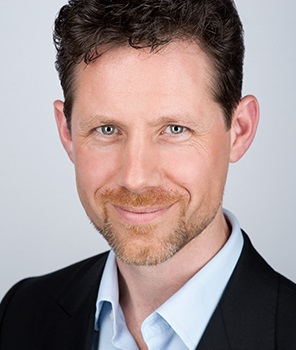What are the causes of burnout?
We often hear people talking about 'burnout', but what is burnout? And how do you get it?
Burnout occurs when you have depleted virtually all your personal resources. Whilst this refers primarily to *emotional* resources, it's almost always accompanied with physical symptoms that would include a chronic lack of energy.
At its root there is a loss of any sense of purpose.
We could further describe the situation by saying it involves:
o A lack of focus (attention/care spread too widely)
o Feeling like you have little control
o Feeling like your work has little significance
o Feeling like whatever you do is not enough (expectations, lack of reward)
o Lack of balance in lifestyle
At its root there is a loss of any sense of purpose.
We could further describe the situation by saying it involves:
o A lack of focus (attention/care spread too widely)
o Feeling like you have little control
o Feeling like your work has little significance
o Feeling like whatever you do is not enough (expectations, lack of reward)
o Lack of balance in lifestyle
Have a look at the relative number of Google searches for the phrase 'How to prevent burnout' across the months of the year. What do you notice? In August less than half the usual searches occur, but it rapidly doubles and doubles again in the two months following. The problem is systemic - an ill that affects the whole nation.
Just ask yourself
‘Why am I doing this job?’
If your answer is not how lengthy and passionate
You may be close to burnout already
Some people say that ‘a change is as good as a rest’ – but how true is that?
Sameness can kill! We all have a NEED for variety – but some of us need more than others. Check with yourself how much variety you require and plan for it.
On top of that we also need to schedule times when there are minimal DEMANDS on us. The 'Sabbath' (day of rest) was decreed so that we look at life from a stand point of relationship (appreciation, thankfulness) rather than through the lens of WORK (mechanics, action, reward).
On top of that we also need to schedule times when there are minimal DEMANDS on us. The 'Sabbath' (day of rest) was decreed so that we look at life from a stand point of relationship (appreciation, thankfulness) rather than through the lens of WORK (mechanics, action, reward).
How do we re-charge our batteries when life feels like it’s on full-speed, in our hectic lives?
- You heed the signs… in your own life (thoughts, emotions, body... ) and in the example of others
- Take responsibility and take control – it’s not up to anyone else to do this
- Prioritise YOU: Get clear about and schedule time to do those things that recharge you – (Introverts and extraverts do this differently)
- Redefine the way you do life:
- Re-evaluate the expectations you have of yourself and that others have of you
- Define new, realistic standards for your health, fitness, learning, relationships, social life and activities.
What can we do to increase our general resilience, so we are able to handle more of what life throws our way?
- Physical exercise not only ensures you have more physical energy it also massively boots your mental energy, confidence and stamina
- Even Saint Paul said, ‘Physical exercise is of *some* value…’ so we should be giving SOME time to it – not neglecting it completely. We are responsible for maintaining the ‘temple’ that is our body
- Also, good eating and sleeping help build your immune system and provide you long term reserves that will help you tackle the demands of your daily tasks
Frazzled right now? Try this….
1. Sit alone,for a while - with no phone, TV, radio, mobile. Just you.
2. Give yourself enforced 'still' time
3. As those feelings arise that tell you to get on with things…
4. Ask, ‘What would happen if I did that task?’
5. ‘What would happen if I didn't do that task?’
6. ‘What wouldn’t happen if I didn’t do that?’
7. Whilst you’re still a bit confused about that last question, ask yourself,
“If I was really honest with myself, what would I actually like to have happen?”
8. Then acknowledge that YOU now have the opportunity to make that thing happen.
You are responsible for making it happen… no one else.
2. Give yourself enforced 'still' time
3. As those feelings arise that tell you to get on with things…
4. Ask, ‘What would happen if I did that task?’
5. ‘What would happen if I didn't do that task?’
6. ‘What wouldn’t happen if I didn’t do that?’
7. Whilst you’re still a bit confused about that last question, ask yourself,
“If I was really honest with myself, what would I actually like to have happen?”
8. Then acknowledge that YOU now have the opportunity to make that thing happen.
You are responsible for making it happen… no one else.
Let me know if that exercise has helped you at all. I'd love to hear if it's given you a new perspective on things.
Pad
Pad
For more blog posts head over to TeamMe.com





 RSS Feed
RSS Feed
